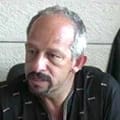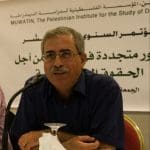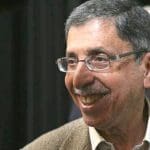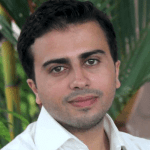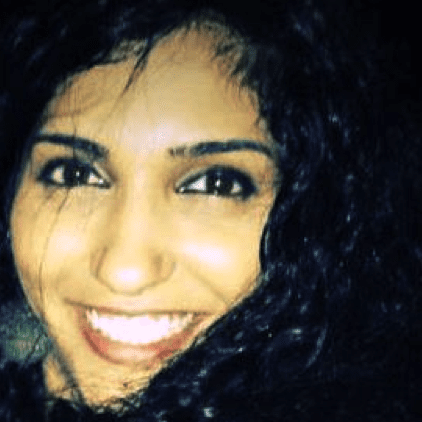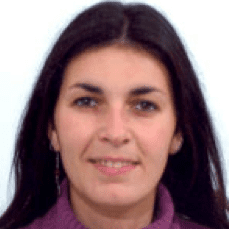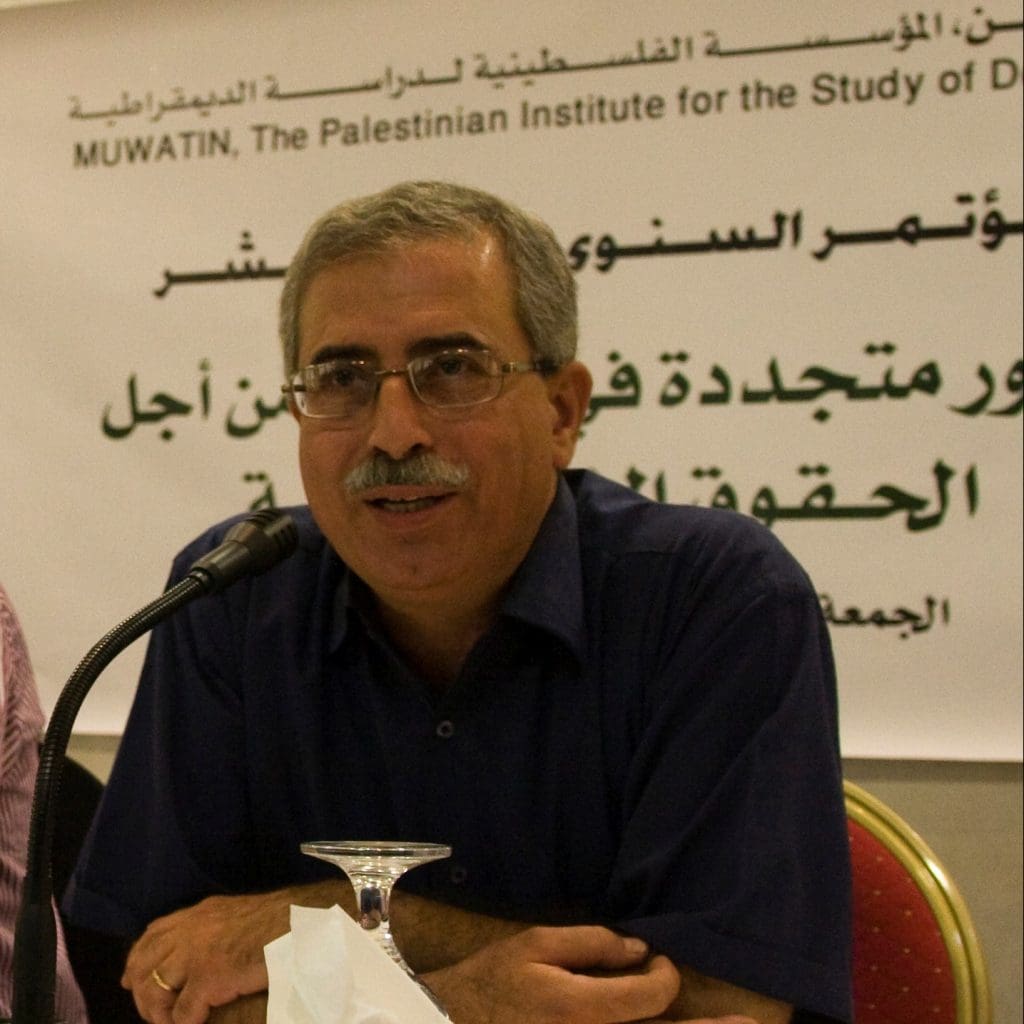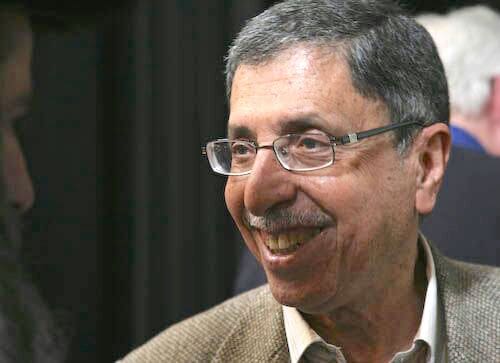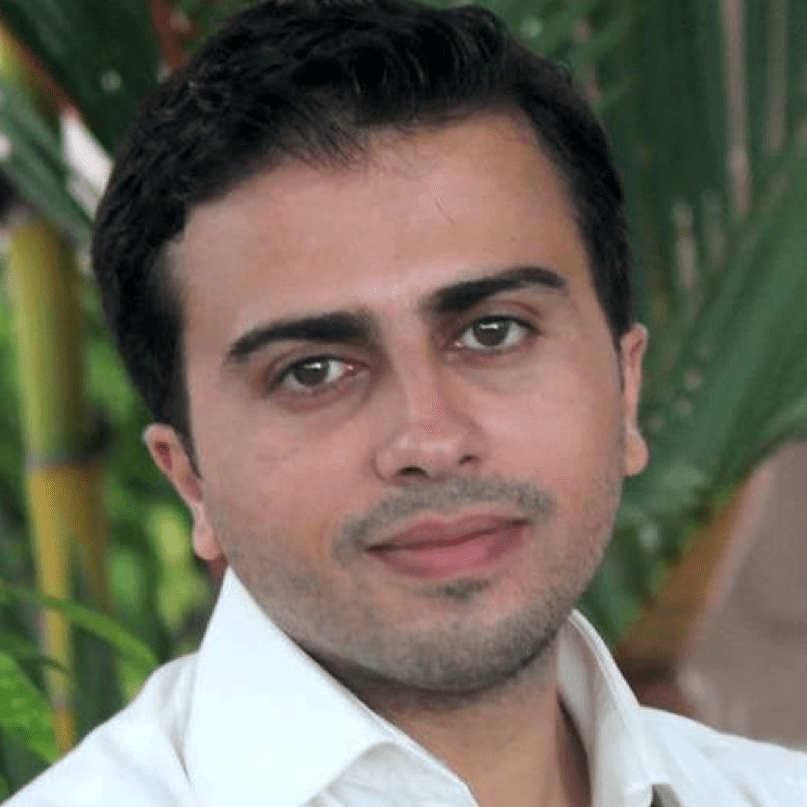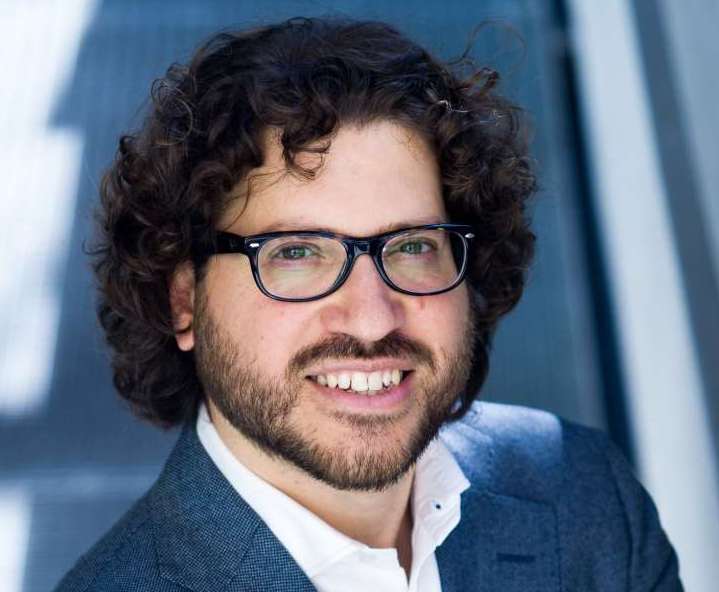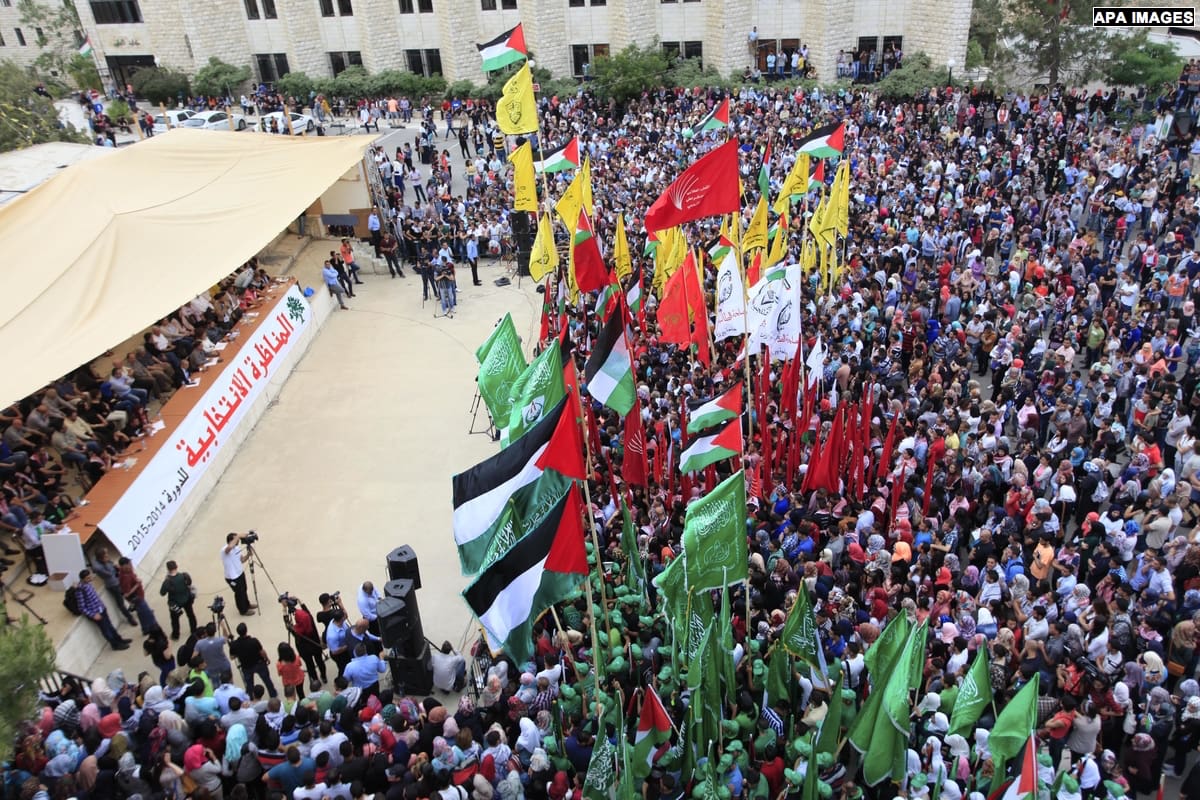
Overview
The absence of authentic Palestinian national leadership is particularly acute at this time of crisis. The current youth uprising against Israel’s prolonged military occupation and denial of human rights in the occupied Palestinian territory (OPT) and within Israel is generally acknowledged to be largely leaderless. What role is there for political parties to contribute to the youth uprising given that they remain entrenched in the Palestinian body politic despite their splits and weaknesses? Assuming that Fatah-Hamas reconciliation remains stalled, what can other political parties and forces do to provide a framework for national leadership, whether within or outside the Palestine Liberation Organization (PLO)? What other avenues could provide a space for national – or local – leadership to emerge at such times of crisis, and beyond?1
There are some common strands in the Al-Shabaka policy analysts’ diagnosis of the situation, but their ideas for future action divide into two broad clusters: Those who suggest alternatives beyond the current political set-up and those who look for ways to make the current structure work. Jamal Juma’ calls for serious investment in rebuilding the political space in order to support the uprising, including strengthened homeland-Diaspora ties. Jamil Hilal argues that one way forward is by building on and linking local, democratically constituted committees as the basis for a revived national movement. Nijmeh Ali does not see a new alternative framework but rather calls for a change of behaviors within the existing system. Khalil Shaheen also believes there is still room in this transitional phase for the traditional party system – as compromised as it is.
Jaber Suleiman points out that the youth wave of anger is as much against the PA, but that there is no option but to find ways to collaborate in order to sustain the momentum. Mjiriam Abu Samra concludes that it is the youth themselves who will ultimately radically reform Palestinian politics. Belal Shobaki notes that the fact that the Popular Front for the Liberation of Palestine and Islamic Jihad can still bring out the numbers could serve as a way to harness traditional parties to the new wave. Alaa Tartir argues that confrontation at all levels and different spheres needs to become a way of life until freedom is realized.
Jamal Juma’: Vision, Clear Objectives, Multi-Level Relationships
For nearly two months, Palestinians have waited for the political parties to shoulder their role in leading and guiding the uprising. Clearly, they are neither able nor willing to do so. There are several reasons for their inaction. For one thing, party leaders are reluctant to pay the price of leading and framing popular resistance, whether this price is extracted by the Israeli occupation authorities in the form of arrests, prosecution and targeting of organizations – especially as the parties operate openly and their organizational structures are weak. Nor do they want to lose the privileges they enjoy as members of the PLO, both in terms of financial benefits and political status.
Moreover, the various parties cannot act without the consent of the Palestinian Authority (PA) security apparatus and that of its leading faction, Fatah: They are currently too weak to change the status quo. President Mahmoud Abbas, who holds all the power, believes that the uprising accomplished its mission by refocusing attention on the Palestinian cause and stimulating the international community and is betting on new initiatives to resume the negotiations with Israel. Indeed, Abbas has announced in unequivocal terms that he does not want an uprising.
Given the weakness of their current composition and organizational structures, these parties cannot provide a political, organizational and economic framework capable of leading a long-term uprising that would drain the Israeli occupation’s resources and energies. A successful uprising would require a comprehensive vision to achieve clear and attainable objectives by mobilizing local, regional and international opportunities and relationships.
As for the Islamic forces, Hamas and Islamic Jihad, they have also taken the same position of inaction. They too do not want to pay the price and give Israel an opportunity to launch an offensive against the Gaza Strip. They also fear that the uprising could be exploited to improve the terms of negotiations for the Palestine Liberation Organization (PLO) and PA.
There are several factors in favor of creating a space for a new national or local leadership. Even if it subsides, the current uprising has raised the question the current leadership’s eligibility and has legitimized the search for alternatives. It has also united the Palestinian people inside the Green Line, the West Bank, Jerusalem and Gaza. Ironically, the political forces are the ones who remain divided. The Palestinians in the Diaspora have also acted albeit in a limited way, and have helped to organize demonstrations. The actions on the ground are seeding an emerging leadership that can be nurtured, although it is scattered and localized.
On the negative side, however, it is clear that the PA will not allow a new leadership to emerge, and will spare no effort to thwart it, even if this requires coordination with the Israeli occupation – with which it is coordinating anyway. In addition, the existing grassroots movements are weak, while intellectuals play a weak role in Palestinian political life and are unable to support popular forces. As for the Palestinian diaspora, it has little influence on decision-making.
The challenge is to build on the positive factors and minimize the negative ones: Note that any serious movement to create an alternative leadership would have to work below the radar to some extent.
To begin with, it is important to provide a space safe from political domination, a space in which it would be possible to support those popular forces that have a political vision and capacity to mobilize, such as trade unions, farmers’ organizations, women’s federations, and of course youth groups, so that they can work alongside the uprising.
It is also important to tap the potential of the Palestinian Diaspora, especially among the youth, and to organize working groups that could communicate and coordinate with enlightened national figures who believe in the important role the Diaspora has to play in both Palestinian decision-making and in supporting the resistance of the Palestinian people.
Indeed, it is vital to invest in meaningful coordination between the homeland and the Diaspora. We must rebuild the trust between us and revive our self-confidence and confidence in our ability to affect change. In the final analysis, we must have absolute faith in our people and in their ability to sacrifice and advance and we must believe, beyond any doubt, that we will prevail.
Jamil Hilal: Democratic Communities, Networked New Leadership
Democratic and progressive political parties have historically provided leadership in the struggle for freedom from oppression, especially from settler-colonial pillage and terror. Unfortunately this has not happened here since the first Intifada in the late1980s. Not only have political parties and movements failed to embrace their responsibility, they have also acted in ways that have fragmented the Palestinian national liberation movement. Instead, the parties should have critically reviewed past progress and failings so as to rebuild a movement more attuned to new national, regional and international conditions. In short, political parties are in no position to provide a unified leadership and a coherent strategy to the present youth struggle against the colonial oppressors and to the youth’s bleak future.
As for reconciliation between Fatah and Hamas, all indications are that it is not forthcoming soon. The other political parties have played the role of a mediator instead of forming an alternative leadership with a program to address the intensified fragmentation, colonization and subjugation imposed on Palestinians. No historic bloc has been formed to pressure the two main opposed movements (Fatah and Hamas) to come to their senses, or, failing which, to take the responsibility of providing a new vision and leadership. The majority of the Palestinian people are disillusioned and frustrated by the continued bickering and performance of Fatah and Hamas while more land is colonized and homes destroyed, Palestinians arbitrarily arrested, Jerusalem Israel-ized, Gazans subjected to a slow genocide, the 1948 Palestinians suffering discrimination and segregation, and refugees condemned to exile. Now unarmed youth are being assassinated in cold blood by the Israeli army and settlers while security co-ordination is shamelessly maintained.
The answer may be for each Palestinian community to establish its alternative democratic leadership and to think collectively regarding how to construct a new national movement while preserving the assets that the Palestinian struggle built in previous decades. This will not be easy, but the 1948 Palestinians seem to be on the right track and their example should be studied and where possible followed.
Of course, this is not easily implemented. Yet there seems to be a need, given the extremely vulnerable situation of most Palestinian communities, to establish local committees in villages, refugee camps, and town neighborhoods so that they can articulate their needs according to the specifics of their situation, and then to form larger associations. For example, in the West Bank, the question for a large number of communities is how to defend themselves, their land and property against the murderous attacks of the settlers; in the Gaza Strip, how to contend with the pressing problems caused by Israel’s siege and repeated deadly wars; and in Lebanon, how to empower popular committees in the refugee camps so that they form a “unified framework” to deal with the broader problems across camps. The role of such local committees could expand as the situation demands, whether from municipalities, village councils, local branches of political parties, and local civil societies and institutions. The examples of the ongoing struggles of Higher Follow Up Committee among the 1948 Palestinians and the struggles of the Boycott, Divestment, and Sanctions (BDS) movement are beacons for the rest of us.
But in the real world, people sit down and find concrete solutions to the problems they face in a specific situation. Luckily, they do not wait, for people like me to tell them what to do.
Nijmeh Ali: Change Must Come From Within the Parties
The Palestinian youth that have taken to the streets are initiating an important phase in responding to the Israeli occupation and to injustice, indicating the significant role the younger generations could play replacing the current leadership.
However, the question remains: is the new generation capable of bringing the uprising or wave of anger from the street into political or diplomatic spheres? The problem lies in the failure to revolt against the traditional Palestinian leaderships of Fatah, Hamas and the left: This is what is needed in order to transform the spirit of revolution into diplomatic and political results.
The Palestinian political parties are currently acting like parties everywhere: They are weighing the political gains they can reap from this wave of anger, such as resuming negotiations with Israel. They are not acting like revolutionary parties fighting a battle for liberation, and are out of line with the public mood. Thus, the parties are likely to erect obstacles rather than to support the youth uprising or any other action outside established institutional frameworks such as the factions armed wings. Uncontrolled actions do not benefit political parties because they cannot steer them.
The issue is not about creating a new space within or outside the PLO. It is also about changing the political behavior of Palestinians as a people affiliated with existing political bodies. It is imperative to transcend the narrow partisan affiliations have entrenched the internal Palestinian division and weakened the PLO. The popular wave of anger is an open rebellion against such narrow affiliations and an expression of the need to reinforce national as opposed to partisan attachments.
However, given this reality and the deepening partisan division, it would have been more promising had the youth rebelled against the current political leaderships and replaced them with younger leaders with political energy, confidence and vigor.
Local leaders have never been isolated from their central leaderships: Fatah and Hamas, for example, are mass political movements rather than political parties in the traditional sense. Therefore, one does not envisage a scenario in which an independent popular movement could emerge, even though popular committees could be established as was the case in the first Intifada. It is worth noting that the unified national leadership of that Intifada was formed by political actors who espoused common political goals and a vision centered on ending the occupation as a fundamental step towards liberation.
In short, we need a Palestinian spring within the Palestinian parties rather than alternative political frameworks that would reinforce the division and the narrow partisanship. Without rebellion from the youth within the Palestinian political parties, no uprising will effect real political change. The sacrifices of the Palestinian people will go to waste, increasing the frustration with their sense of helplessness. It would be truly alarming if this frustration slowly kills the Palestinians’ faith in their power to become liberated.
Khalil Shaheen: Activism that Sidesteps Traditional Politics
The Palestinian political system is nearing its demise after forsaking its identity as a national liberation movement by recognizing the legitimacy of a racist settler colonial system in the Oslo Accords. The current wave of anger is a rebellion against this relationship and the ideology on which it was based. The wave is also an extension of forms of expression and political action that have evolved outside the traditional political and organizational system established in the 1960s, which itself has experienced a slow and terminal decline.
However, one must acknowledge the “coexistence” between the traditional politics of the PLO, the PA and the Palestinian factions on the one hand and the new forms of political action on the other due to the transitional nature of the present stage. In particular, the traditional national movement continues to have a political role despite its inability to realize its historical goal of achieving the national rights of the Palestinian people.
This realization should stimulate Palestinians to think strategically about the repercussions of a failing ideology and set of practices and what is needed to restore the Palestinian national project and a national body capable of achieving its objectives.
In the past few years, some have taken the position that there is no need to rebuild the national movement as a prerequisite to adopting programs of action. Rather they believe that recruiting a broad range of actors into participatory programs of action is the way to rebuild the national movement. This approach focuses on creating a new path based on uniting Palestinians in the homeland and the diaspora. The global BDS movement, the right of return movement, and the popular resistance committees against the Separation Wall are all expressions of new forms of action outside the traditional framework of party political action.
Similarly, the current wave of anger is a new form of popular and youth-based action. The traditional political party system failed to predict the consequences of this action at a time of heightened division and internal conflicts over power and influence. This wave may falter or intensify but it is likely that it is one of a series of waves that will continue to gain momentum until they become a tsunami expressing the collective recognition of the Palestinian cause as one of national liberation and the need to rebuild the national and institutional structures capable of creating a new path for struggle.
The current wave of anger shows that there is a new generation redefining the people’s relationship with the Israeli occupation as one based on conflict rather than “understanding”. It is doing so by defying the monopoly of politics within the Bantustans run by the PA, which Israel’s occupation been transforming into an administrative, economic and security agent within a system of colonial domination.
However, this does not mean the end of the political role of factions, despite their state of internal division and lack of popular legitimacy. The factions still govern the practice of politics and forms of armed resistance, especially in the Gaza Strip. They dominate the PLO, PA, trade unions, professional associations and student bodies.
The current signs for emerging new forms of political action and struggle may seem similar to those witnessed in the late 1950s and early 1960s when a young generation used favorable Arab and international conditions to set a new path for struggle that overthrew the pre-Nakba and post-Nakba leadership in a relatively short time. That generation developed political bodies and armed groups that derived their legitimacy from the people, who proclaimed their allegiance to the new leadership without elections.
However, the conditions today are different and key elements of this process are still missing. There is still space for the traditional actors to play a role. Yet it will not be possible to restore politics as an organized activity with broad popular engagement unless the goals, work methods and rules change. At some point, the traditional parties must deal with the new forms of political activism that is redefining the relationship with the colonizer.
This will require working with the younger generation to establish the goals and demands of the current wave of anger rather than attempting to monopolize or contain it. This could help to transform the traditional parties’ forms of political action into a proactive struggle led by the younger generation and hasten the evolution of a comprehensive uprising capable of creating a new path in the struggle for liberation.
Jaber Suleiman: Overcoming a Paradox to Rebuild the Movement
The youth movement underway in Palestine raises several questions regarding its motives, causes, and nature. Is it an expression of despair and frustration or a rekindled national spirit? Is it triggered by Palestinian division, the tattered state of the PA, the demise of the Oslo process and the two-state solution, aggressive Israeli settlement expansion, the desecration of holy places, or declining Arab interest in and international neglect of the Palestinian cause? Will it evolve into a popular uprising like the first intifada or will it remain an expression of anger that will soon recede? What conditions need to be met in order for this movement to evolve into an uprising guided by a unified national leadership and national program? What role should the PLO factions and the wider Palestinian leadership play to strengthen and protect the uprising and develop a unified national leadership, given the institutionalization of the Palestinian division? And how?
This unprecedented youth movement, which is led by Palestinians born around the time of the signing of the Oslo Accords, is directed against the occupation. Yet it also includes anger and protest against the PA and its political performance, which is responsible for the current state of the Palestinian cause in general and the conditions in the OPT in particular. This is the paradox we face: How can the Palestinian factions, within and outside the PLO, which helped to create the current state of affairs contribute to developing the movement and creating a unified leadership? In fact, the factions can neither be excluded nor exempted from responsibility, especially given the lack of an alternative national movement or a popular, non-factional bloc (a historical bloc in Gramsci’s sense) capable of formulating an overarching national body inclusive of all Palestinians.
The importance of coordination between the political leadership and the youth who are confronting the occupation on a daily basis cannot be overstated. This does not mean that the factions are free to hijack and exploit the movement to achieve other goals that are not in line with fighting the occupation, ending the division and finding a way out of the current Palestinian impasse, especially as the Palestinian people continue to pay the price for the way in which the first Intifada was exploited in order to sign the Oslo Accords.
There are urgent national tasks for all to undertake. The factions should not overburden the youth movement or push it towards militarization or achievement of quick results such as an immediate ending of the occupation that they themselves have collectively failed to realize. Consequently, there needs to be agreement on modest phased and tactical goals. The factions should treat this wave as one step on the long and thorny path of struggle, and must contribute to and support it on this basis. The factions should listen to the younger generations and include them in the field leadership and local committees that need to be created.
The parties should focus on forming a unified political leadership that represents all factions, even before ending the division, so as to sustain the steadfastness of the Palestinian people and prepare for a long battle with the occupation. This is indispensable for developing the current youth movement into a popular uprising and extensive civil disobedience along the lines of the strike of 1936, together with diplomatic and legal battles against the Israeli occupation on the international front. To achieve these efforts, the security coordination with Israel must cease immediately, as an essential step towards dismantling the administrative and legal structure of Oslo. The PA’s functions should be reconsidered, and the division between Hamas and Fatah should be overcome so that the PLO can be rebuilt on an inclusive national foundation.
The anti-occupation forces, which include civil society institutions, grassroots organizations, trade unions, professional associations, universities and the BDS campaign must engage more actively in the youth movement. They need to use their international ties with solidarity groups and anti-discrimination and anti-occupation movements around the globe to support the youth and their drive to ending the occupation.
Mjiriam Abu Samra: Palestinian Youth Will One Day Redefine Palestinian Politics
In order to address the overarching issue of why the historical political parties have not been able to catalyze current youth frustration so far we need to consider the way Palestinian politics have been transformed, primarily the shift in the PLO political discourse and strategy from a liberation struggle to state-building. This deprived the struggle of its foundational principles and slowly undermined its strategies: A neo-colonial normalization with the occupier replaced the original anti-colonial framework that shaped the struggle. As a result, the national movement was paralyzed in terms of its capacity for grassroots mobilization.
The neo-colonial relationship between the colonizer and the colonized isolated the Palestinian leadership from its popular constituencies and the struggle stalled. The crisis between Hamas and Fatah is one demonstration of the complex colonial condition imposed on Palestinians and the inability of Palestinian parties to give priority to the will of their people over the neoliberal interests. Although its most acute manifestation is the Fatah-Hamas crisis, the neoliberal project ushered in by Oslo has affected all Palestinian parties to varying degrees and has made them unable to give expression to the popular will.
With this broader framework in mind, we are unlikely to see any significant role for the historical parties in the current uprising – unless they restore the anti-colonial political vision and discourse of the Palestinian movement. However, such a radical shift could mean the very extinction of the ruling class and the dismantling of the apparatus of economic and political interests in the OPT. This is a risk that the Palestinian leadership seems unwilling to take at the moment.
Indeed, any other effort to provide a solid and long-lasting leadership to the spontaneous movements on the ground needs to reposition liberation and justice at the core of the struggle. It is more likely that Palestinian youth will eventually play a role in a radical re-definition of Palestinian politics than that the historical parties will make a genuine contribution to the current uprising.
In this regard, we should pay attention to the new efforts coming from Palestinian youth in the Diaspora (shatat) and in historical Palestine, who are providing a solid political framework to the current uprising and, in general, to Palestinian discontent. It is too early to assess the strategic potential of these initiatives, yet it is important to highlight the radical discourse they are endorsing. It is also important to recognize, above all, the strenuous effort to re-unify – if only symbolically, for now – the political message of all constituencies of Palestinian society: those under occupation in the West Bank and Gaza, those in “48 Palestine” and those in the Diaspora. See, for example, the transnational mobilization called by Palestinian youth from all over the world on Nov 29, which the United Nations marks as the international day of solidarity with the Palestinian people.
Such efforts are a new trajectory for Palestinian politics that aim to unify Palestinian society around a shared vision of justice, liberation and return. These nascent initiatives might provide a new space for the emergence of a national leadership able to elaborate –and sustain – a renovated strategy of resistance for the Palestinian struggle.
Belal Shobaki: Turn to the Political Parties Who Can Still Mobilize
The current popular movement makes it even more urgent for the political parties to transcend partisan interests and contribute to the expansion of civil and social activism. Fatah and Hamas have a golden opportunity to move beyond their preoccupation with the institutional concerns of managing the PA and to act in a way that befits their identity as liberation movements under occupation. All factions should join ranks in drafting a national agenda that transcends Oslo and the institutional structure incapacitating the Palestinian struggle. They can use their media machines to rebuild a political, economic and social culture that nurtures the uprising rather than polarization and partisan mobilization. This would entail a behavioral change in the Palestinians’ comfortable consumption habits, especially in the West Bank.
Fatah may find it difficult to take such actions, given that it identifies with PA institutions. However, Fatah’s loss will be much greater if it fails to change. The general mood of the Palestinian public, including Fatah’s own constituency, differs completely from the political leadership’s belief that the current events are just a “wave of anger” that can be controlled by the security agencies and exploited to drive negotiations with Israel. The Palestinian factions’ failure to mobilize for an open confrontation with the occupation while the youth uprising continues will doubtless generate field leaders who will be more capable of directing the scene than those sitting in their offices. This would lead to a widening gap between field forces free of regulatory and partisan restrictions and government bureaucrats.
Such a movement should look beyond the Fatah and Hamas options. The Popular Front for the Liberation of Palestine and Islamic Jihad could mobilize strong rallies and demonstrations against the occupation. Both enjoy the respect of the Palestinian people and have more freedom than Hamas, which has been the target of a double security campaign in the West Bank by Israel and the PA. Both movements could work with other factions to support open confrontation with the Israeli occupation and lead a call for the formation of coordinating committees to manage the uprising. These committees should later evolve into a joint leadership that subsequently becomes an integral part of the PLO as part of a program to reform the organization.
However, creating a new space is contingent on overcoming past experience and specifically the experience of the Oslo formula for a two-state solution. The actors currently monopolizing Palestinian political institutions are the ones who still back this formula. If the public turns the uprising into a rejection of Oslo, in addition to confronting the occupation, either new leaders will emerge who will pursue new options or the current leaders will feel compelled to change their rhetoric and political behavior.
Alaa Tartir: The Politics of Confrontation
Who will protect and build on the Palestinian wave of anger currently raging in the OPT, and how? The answer to this question should concern us deeply: The continued sacrifices of the Palestinian people should not be exploited by the traditional Palestinian political elite – yet again – as a card in some new round of ill-fated negotiations. It must also not become a way for the authorities to use simply to release the youth’s anger.
The traditional Palestinian leadership’s protracted inability to realize Palestinian aspirations has created an opportunity for non-traditional leaders, including Palestinian civil society actors and opponents of the PA. However, they have yet to make fully use of this opportunity. A structural transformation of Palestinian leadership is needed. It will need time, resources, and political determination as well as mass mobilization at key moments. The forms of struggle and the political objectives are among the key questions to be answered. The alternative is taking shape, but it is still young like the youth in revolt. It is important to address these questions quickly: Without the necessary support and mechanisms to coordinate efforts and initiatives, the movement will quickly die out.
Non-traditional Palestinian leaders should act now to pool their efforts into creating a strategy for struggle that generates rather than draining the wave’s potential and energies. It is a tall order, but it is the only way to avoid another disappointment that increases the existing frustration and disorientation. Moments of historic transformation are never easy.
The way ahead will involve cycles of confrontation on many different fronts. In other words, the confrontation should not be limited to physical standoffs at military checkpoints but extend to the political, economic, media, and other spheres. Indeed, confrontation in a situation of colonization is the only way to change the balance of power equations, challenge the facts on the ground and built a path to the future.
The current movements by the youth and by non-traditional leaders in civil society embody the politics of confrontation: They use collective action to challenge the authorities and their claims of representation. However, we need to move from the current state of anger to a movement that represents the Palestinian society as a whole, transforming it into a society grounded in social movements and horizontal networks that focus on political, economic, and social issues. This can be done by building on existing social and other networks in order to promote collective goals, working for liberation from colonization and defying repressive authorities and elites. This can transform the current wave of anger into a permanent state of confrontation with the colonizer as well as a sustainable social movement that brings the colonized closer to freedom and self-determination.






